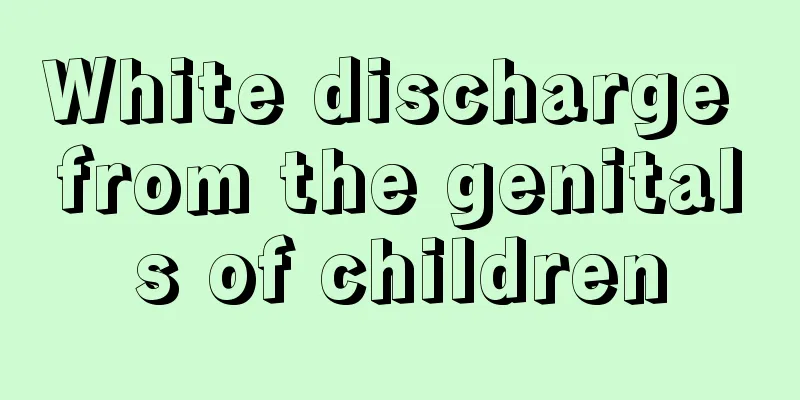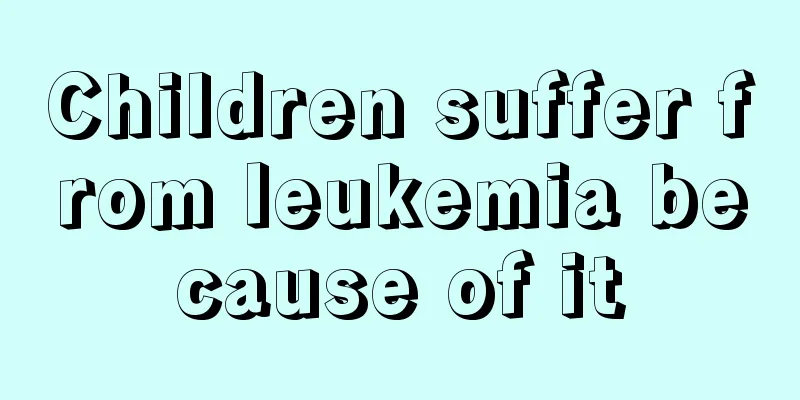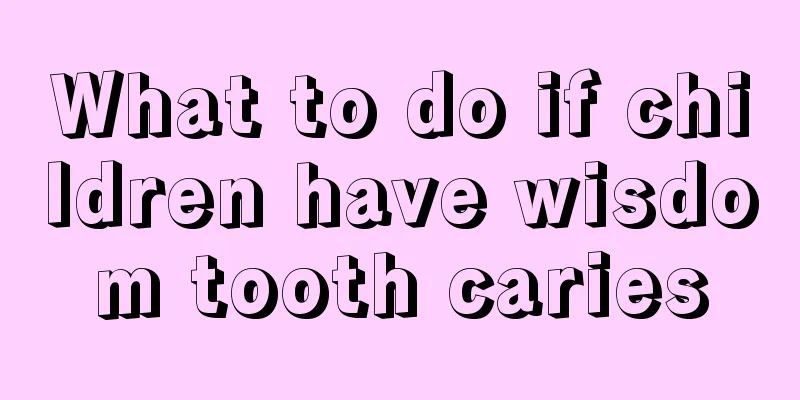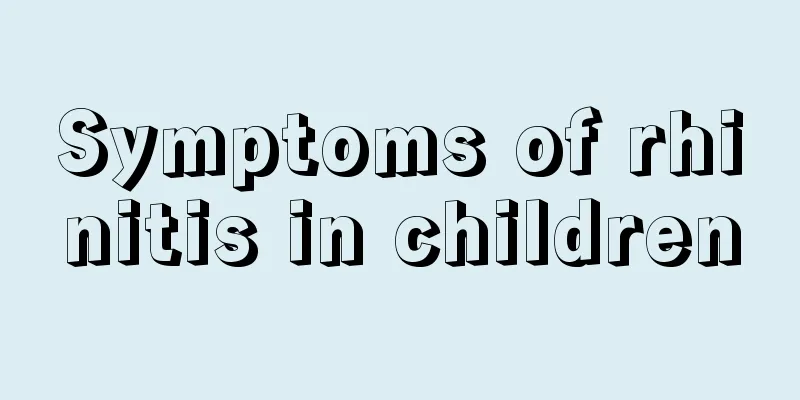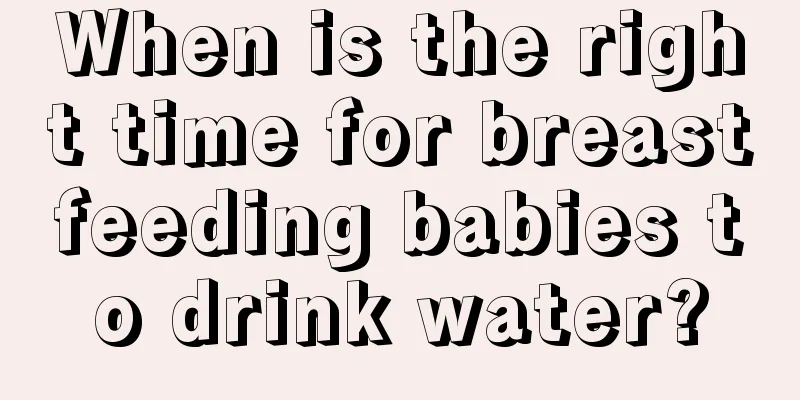How should children take deworming medicine?
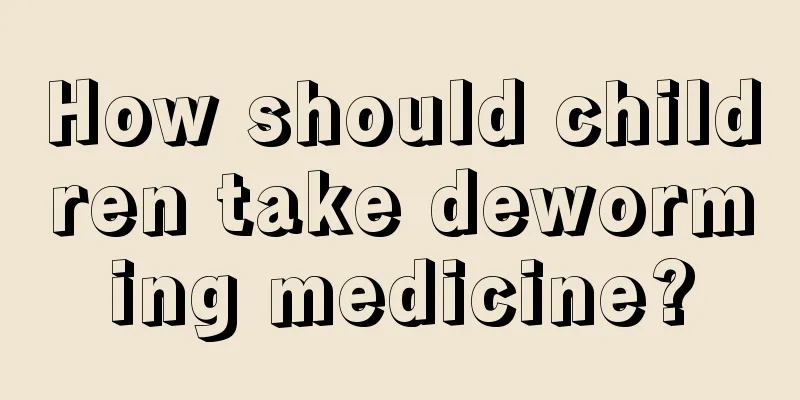
|
In daily life, we often see people in hospitals consulting about deworming clinics. Adults rarely go to such places, but many adults bring their children to such places, which means that there is something wrong with the children's bodies. Nowadays, many children have poor body resistance and are easily infected by bacteria, which cause worms. Most worms can be found in feces, but they are not as scary as imagined. They are generally very unobvious and can only be seen under laboratory tests. When children show abdominal pain, often grind their teeth, do not like to eat, and scratch their buttocks, you should consider that there are worms in the abdomen. At this time, they need to take deworming medicine, but deworming medicine cannot be taken casually. You must pay attention to the principles of medication. How to take anthelmintic medicine? Generally speaking, the main mechanism of action of anthelmintics is to paralyze the insects or block their absorption of nutrients, causing the insects to be unable to survive and reproduce and to be excreted with feces. Broad-spectrum anthelmintics have a poor lethal effect on parasites, so many anthelmintics need to be taken in sufficient amounts at one time, and the dosage for different parasites is also different. Autumn is a suitable season for deworming children. In the hot summer, children are more likely to eat raw fruits and vegetables, or even drink raw water. The eggs enter their bodies and develop into adults in the fall. Anthelmintics should generally be taken on an empty stomach so that the medicine can more easily act on the adult worms and achieve the anthelmintic effect. After taking the medicine, drinking more water and eating less greasy food will help expel the parasites. Common side effects of anthelmintics include nausea, vomiting, drug allergy, diarrhea, and headache. In some cases, they can also lead to serious adverse reactions such as encephalitis syndrome, acute demyelinating encephalitis, and delayed encephalopathy. Commonly used anthelmintics for children, such as Albendazole and Piperazine Phosphate, have relatively small side effects, but they should be used under the guidance of a doctor after infection, and should not be given to children for routine preventive purposes, so as to avoid liver and kidney damage or even more serious adverse reactions. How to prevent parasitic infections? Swallowing worm eggs through the mouth is the main way children become infected with parasites. Therefore, it is important to cultivate good eating and hygiene habits in children from an early age. Do not defecate or urinate anywhere, do not drink raw water, and do not eat raw food or unclean vegetables and fruits; Wash hands before meals and after going to the toilet. Wash hands after playing outside, especially after digging in the sand or soil. Since pets and poultry are easily able to carry parasites, try to avoid letting children have frequent contact with pets. If you already have a pet at home, make sure to deworm it regularly and clean up its feces in a timely manner. |
<<: What should I do if I find my child has a right aortic arch?
>>: Do children with pharyngitis need medication?
Recommend
Can children eat cicadas?
There are a lot of cicadas in summer, they can be...
Can children drink soda?
In the past two years, people seem to have become...
How can children grow taller?
Height is something that everyone pays special at...
What's wrong with a child having a low fever and sweating?
Some children often have fevers when they are you...
How to correct the baby's head tilting to the left
Babies will have many problems during their growt...
What should I do if my child coughs and refuses to eat?
Coughing is a common clinical symptom. Many child...
How to treat children’s thick white tongue coating?
Children's thick white tongue coating is ofte...
What nutrients can children take to grow taller
If the parents are not very tall, then the child ...
What to do if your child has abdominal distension due to indigestion
Because children's intestines and stomachs ar...
Spring calcium supplement recipes for children
Parents, please note that you must remember to su...
How to deal with seizures in children?
Children are easily frightened in life. If they a...
Is it good for children to exercise more?
Children usually have incomplete development of t...
How to care for the small red pimples on an eight-month-old baby’s face?
In our lives, many mothers report that their babi...
What is the reason why children fart frequently?
If a child farts frequently, it may be caused by ...
Moxibustion for children with rhinitis
Nowadays, the chance of children suffering from r...


